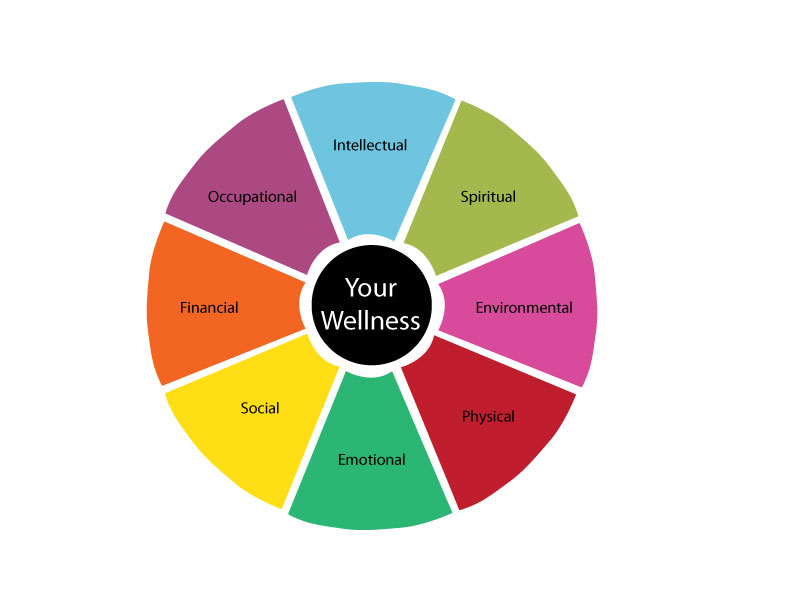What has the greatest impact on health? Maybe it is our genes? Or having access to a grocery store? Growing a garden? It might surprise to know that the people we spend time with and places we go have the greatest impact on our health. Our social connections influence how fast or slow we eat, our food spending habits, the time of day we eat, how we manage stress, whether we go to the doctor regularly or not, how much alcohol we drink, our exercise habits, whether we cook food at home or order in, and so on. The CDC actually explained that our social environment affects approximately 60% of our health outcomes.

Right now our social environment has been dramatically changed. It’s too early to get a full picture of how COVID-19 will affect our long-term health. But the data so far is showing that COVID will have long-lasting affects on our physical, mental, and social health. My personal philosophy has always been it is better to prevent poor health instead of trying to fix it later. In order to work on prevention in a time like this, I believe it is important to understand the connections of health.
Health is not linear and many factors feed into the never-ending cycle of wellness.
Cheryl L Saunders, M.Ed, CHES
Let’s start with the wellness wheel. Each of the wedges in the wheel represents a portion of our overall wellness.

Intellectual: Our ability to learn and problem solve.
Spiritual: Our connection to a higher being or nature.
Environmental: The quality of our air, water, etc. Also, they way we care for the environment around us (for example: reduce, reuse, recycle)
Physical: Eating, Sleeping, and Activity Level
Emotional: Mental Health, Emotions, Moods, Regulation
Social: Friends, Social Networks
Financial: Ability to Afford Health Needs (doctor visits, food, gym memberships, etc.).
Occupational: Job Environment (safety, stress, and so on.)
Image this situation – You’re having problems with your job (occupational) which leads to a restless night of sleep (physical). So you decide skip the early morning workout (physical) to get an extra hour of sleep. You go to work and find it difficult to concentrate and solve the problems (intellectual) that were keeping you up the night before. You finally get frustrated and lash out at a friend or spouse (emotional and social) when you get home from work. Then that night you don’t sleep well again. The cycle continues…
Our behaviors, actions, choices, emotions, and the behaviors of others are in a constantly cycle and they are competing with our health needs. This might sound depressing, but there is GOOD NEWS! This cycle can be interrupted with several prevention measures. I truly do not have enough space in this blog to write all of the different ways to interrupt this vicious cycle, however, I’m going to share of few of my favorites.
Eat More Fruits, Vegetables, Whole-Grains, Plant-Based Proteins and Less Salt, Sugar, and Processed Foods.
Our Emotions Drive Our Eating Behaviors, but also The Food We Eat Can Cause:
- Fatigue
- Irritability
- Dizziness
- Insomnia
- Excessive Sweating(especially at night)
- Poor Concentration
- Forgetfulness
- Excessive Thirst
- Depression
- Crying Spells
- Digestive Disturbances
- Blurred Vision
- Depression and Dementia such as low mood, fatigue, cognitive decline, and irritability
- Inflammation
Be Physically Active Everyday
Please note that I did not say “exercise.” I recommend spending time outside every single day. Take some time to standup from your desk or go for a walk. Stand outside and take several deep breaths in and take a mindful moment to enjoy the sounds of your neighborhood.

Make Half of Your Plate Fruits and Vegetables (With Just a Little Bit More Vegetables than Fruit)
FIBER FIBER FIBER!! I cannot stress this enough. Most Americans do not get enough fiber in their daily diet. Fiber is super important at preventing diseases and improving mental health.
Be Where Your Feet Are
Mindfulness will help reduce unnecessary stresses throughout the day. Worrying about what happened yesterday will not make the situation better, but staying focused on the solution will. Be “where your feet are” is a phrase that I heard an Nike athletic training use. I have used this mantra multiple times to help remind me that I can’t change the past, but I focus on what I need right now.
Give Into Happiness

Sometimes it is difficult to see pass the gloom and doom of the world. It can be difficult to break the cycle of negativity. Allow yourself to soak up the happiness and goodness in the world. It is difficult to not block the negative emotions that jeopardize your happiness. Sometimes telling yourself “No, (Jane’s) bad day is not going to affect my day. I’m giving into happiness.” is a good place to start.
References:
CDC (2014). Social Determinants of Health. Printed in The Health Education Specialists Guidebook Printed by NCHEC 2018.
Salud America (2018). Risk Factors Leading Cause of Death Image. Retrieved from: https://salud-america.org/wp-content/uploads/2018/04/joi180029f2-1.jpg
Lachance, L., & Ramsey, D. (2015). Food, mood, and brain health: implications for the modern clinician. Missouri medicine, 112(2), 111–115.
LaChance, L. R., & Ramsey, D. (2018). Antidepressant foods: An evidence-based nutrient profiling system for depression. World journal of psychiatry, 8(3), 97–104. doi:10.5498/wjp.v8.i3.97
https://www.health.harvard.edu/blog/diet-and-depression-2018022213309
https://www.foodforthebrain.org/media/231110/Depression___The_Nutrition_Connectin.pdf
Quagliani, D., & Felt-Gunderson, P. (2016). Closing America’s Fiber Intake Gap: Communication Strategies From a Food and Fiber Summit. American journal of lifestyle medicine, 11(1), 80–85. doi:10.1177/1559827615588079

